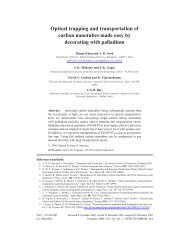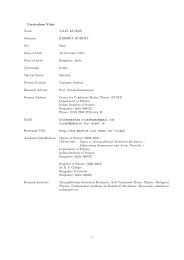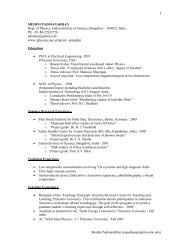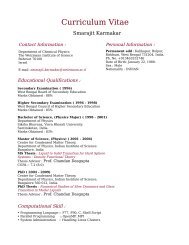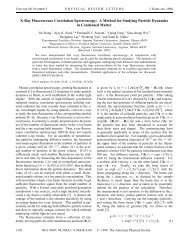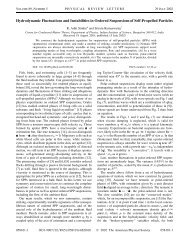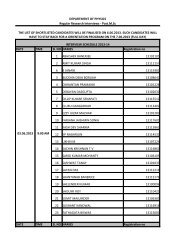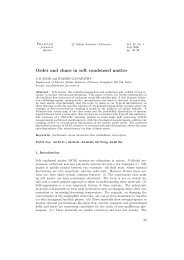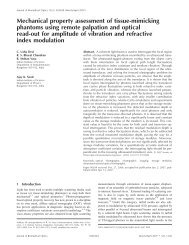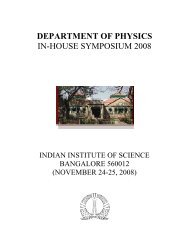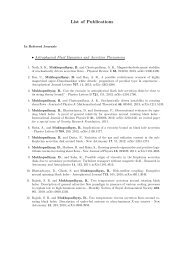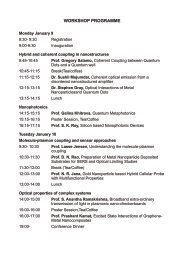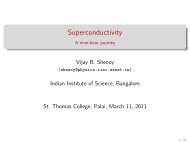Thermoelectric Properties of Fe0.2Co3.8Sb12-xTex ... - Physics
Thermoelectric Properties of Fe0.2Co3.8Sb12-xTex ... - Physics
Thermoelectric Properties of Fe0.2Co3.8Sb12-xTex ... - Physics
Create successful ePaper yourself
Turn your PDF publications into a flip-book with our unique Google optimized e-Paper software.
Heteronuclear Double Quantum Correlation Experiments<br />
Involving Protons for the study <strong>of</strong> Partially Ordered and<br />
Rigid Systems<br />
Y. Jayasubba Reddy a,b and K.V. Ramanathan a<br />
a NMR research Center, Indian Institute <strong>of</strong> Science Bangalore-560012, India<br />
b Departmment <strong>of</strong> <strong>Physics</strong><br />
The current objective <strong>of</strong> our research is to develop and apply high resolution solid state NMR<br />
methods to study the intermolecular interactions and 3D molecular structure <strong>of</strong> small molecules<br />
(like drugs, tri and octa peptides and thermotropic liquid crystals) at isotopic natural abundance.<br />
1 H NMR chemical shifts and dipolar couplings are the powerful probe for intermolecular<br />
interactions, more specifically H-bonding, cis-trans conformation, π-π interactions and<br />
dimerization, which control the self assembly <strong>of</strong> molecules in the solid state.<br />
While considering all these advantages we have utilized 1 H based heteronuclear correlation<br />
experiments. Multiple quantum correlation spectroscopy in the case <strong>of</strong> rigid and semi rigid<br />
systems can provide useful proximity information, as the coherences can be generated between<br />
dipolar coupled spin systems. Here we present our efforts in utilizing proton double quantum and<br />
carbon single quantum correlation experiments for the case <strong>of</strong> static oriented liquid crystal<br />
samples and rigid biological samples. Correlations based on both scalar and dipolar couplings are<br />
being explored. Examples <strong>of</strong> studies with some proline based tripeptides which exhibit cis-trans<br />
isomerism, thiophene based systems and a liquid crystalline material will be presented. To<br />
confirm the resonance assignments, we have also used the GIPAW module contained in the open<br />
source Quantum Esspresso (QE) code and chemical shifts with reasonable agreement with<br />
experiment have been obtained.



